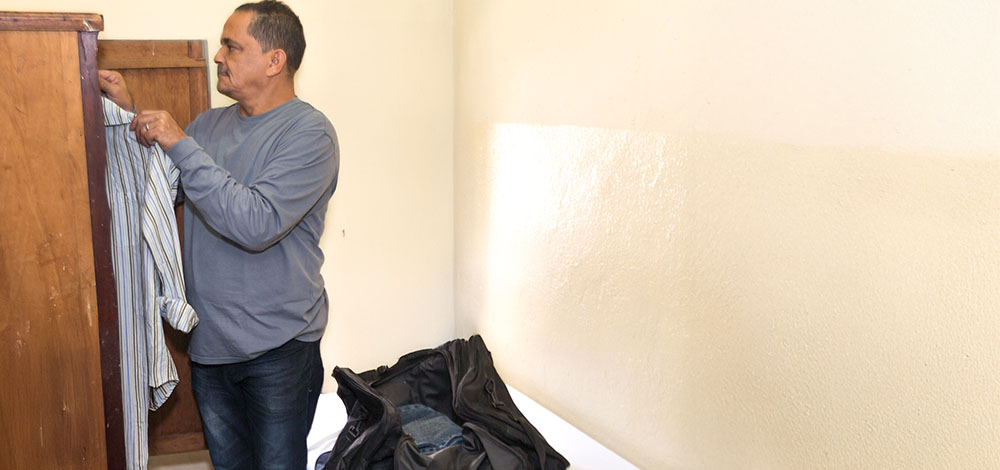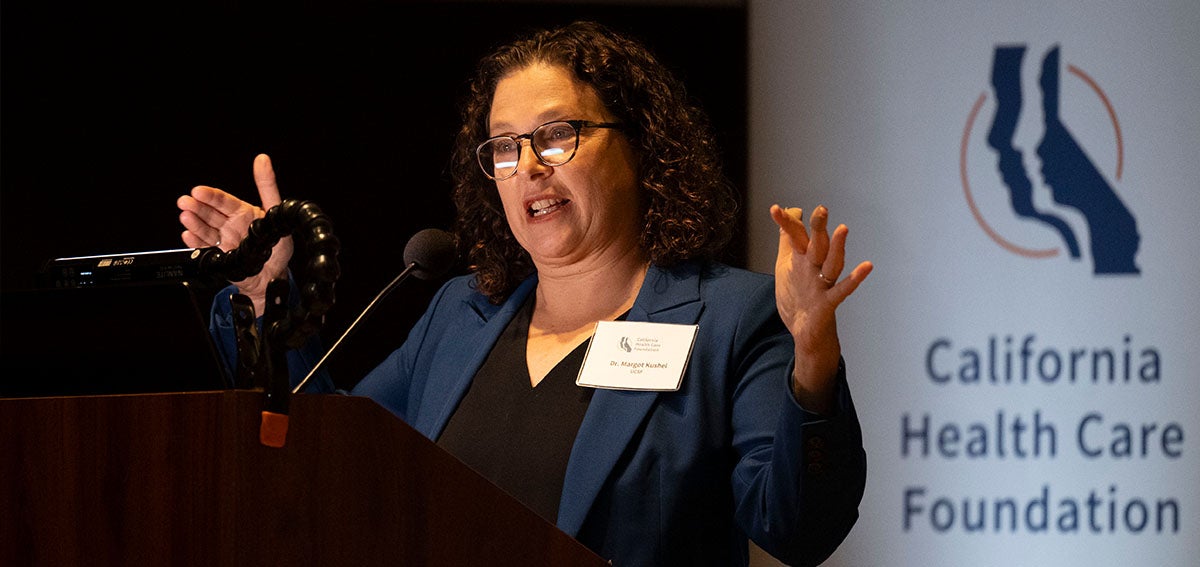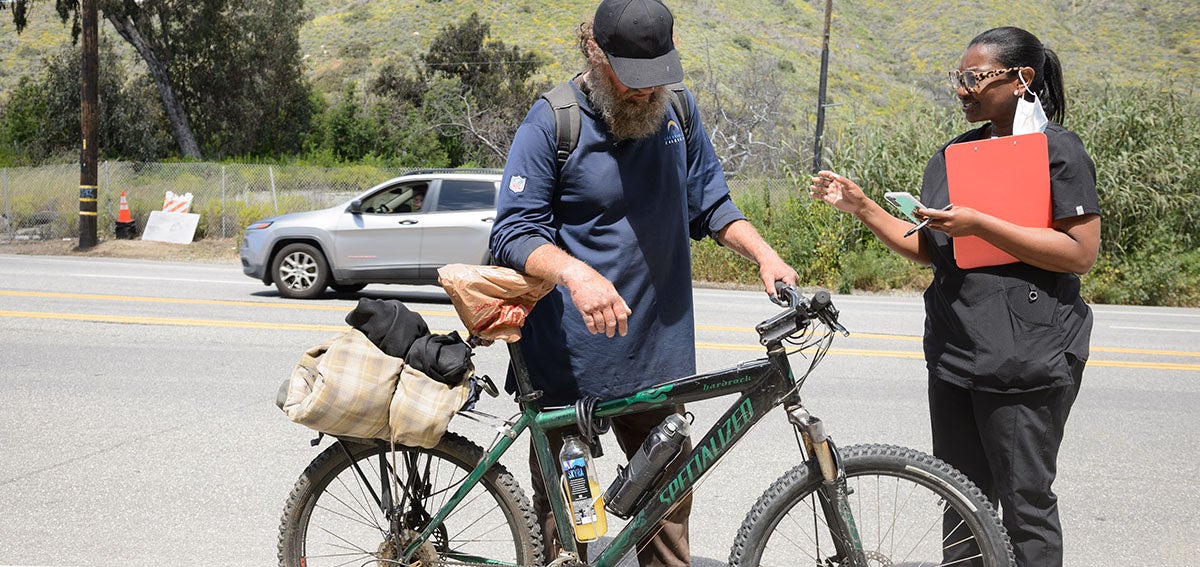With the launch of CalAIM (California Advancing and Innovating Medi-Cal) in January 2022, the California Department of Health Care Services is focused on transforming health care delivery for high-need populations, including people experiencing homelessness.
To address the challenges related to improving health care access for those experiencing homelessness, the Center for Health Care Strategies (CHCS), with support from CHCF, has launched Partnerships for Action: California Health Care & Homelessness Learning Collaborative. This two-year initiative supports partnerships between health care and homeless service organizations to pilot projects focused on improving care delivery for Californians experiencing homelessness.
The objectives of Partnerships for Action are to:
- Build the capacity of health care organizations, managed care plans, community-based organizations, and other stakeholders to collaborate on the creation of a more robust support network for people experiencing homelessness
- Foster peer-to-peer learning through virtual and in-person learning sessions, convenings, site visits, and affinity groups
- Spread best practices related to health care and homelessness across California and nationally
Partnerships for Action includes the following eight competitively selected cross-sector teams:
| PARTICIPATING TEAMS | FOCUS | REGION |
|---|---|---|
| Alameda County Health Care for the Homeless, Alameda Health System-Bridge Program, and Bay Area Community Services | Reduce the risk of overdose among people experiencing homelessness who use drugs through the creation of a peer harm reduction program, expanded access to buprenorphine in street and shelter settings, and the development of a Contingency Management program. | Bay Area (Alameda County) |
| Gardner Health Services and Catholic Charities of Santa Clara County | Create a system that guides people experiencing homelessness through Medi-Cal enrollment and eligibility issues, coordinates care for those qualified for Enhanced Managed Care, and helps address housing insecurity. | Bay Area (Santa Clara County) |
| Marian Regional Medical Center, 5 Cities Homeless Coalition, Community Action Partnership of San Luis Obispo County, Good Samaritan Shelter, and CenCal Health | Employ a homeless health coordinator to provide Enhanced Care Management to people experiencing or at risk of homelessness discharged from the hospital and facilitate cross-sector partnerships to strengthen the care continuum for those receiving care management services. | Central Coast (Santa Barbara and San Luis Obispo Counties) |
| Kings Tulare Homeless Alliance and Anthem Blue Cross | Strengthen partnerships between the local Continuum of Care, health plan, and community partners to better serve people experiencing homelessness through integration of health and homeless services, including the implementation of CalAIM, alignment of the Coordinated Entry System, and improved data sharing across sectors. | Central Valley (Kings and Tulare Counties) |
| Resiliency Village and Mathiesen Memorial Health Clinic | Collaborate with the community to develop a program that offers on-site health, dental, mental health, and substance use services for people in emergency shelter or supportive housing and design a mobile outreach and service delivery program for community members currently experiencing unsheltered homelessness. | Central Valley (Tuolumne County) |
| 211 San Diego, People Assisting the Homeless, Health Net, YMCA, San Diego State University’s Social Policy Institute, McAlister Institute, San Diego Wellness Collaborative, and Legal Aid Society of San Diego County | Enhance data exchange between health care, homeless services, and other community organizations to improve health and housing outcomes for people experiencing homelessness. | Southern California (San Diego County) |
| Akido Labs and Homeless Outreach Program Integrated Care System (HOPICS) | Explore new approaches to care coordination between health care and homeless service providers by piloting new approaches to patient engagement to strengthen continuity of care when practicing street medicine. | Southern California (Los Angeles County) |
| Illumination Foundation, CalOptima, and Orange County Health Care Agency | Develop workflows, in collaboration with local partners, to create a robust continuum of care for people experiencing homelessness to seamlessly transition from the hospital to medical respite care, and ultimately to permanent housing. | Southern California (Orange County) |
This initiative builds on the foundation set by the California Health Care and Homelessness Learning Community, which enabled peer-to-peer learning between providers, managed care plan staff, and other key stakeholders in California.




